- Home
- Brand, Max
Riders of the Silences
Riders of the Silences Read online
The Project Gutenberg eBook, Riders of the Silences, by John Frederick, Illustrated by Frank Tenney Johnson
This eBook is for the use of anyone anywhere at no cost and with
almost no restrictions whatsoever. You may copy it, give it away or
re-use it under the terms of the Project Gutenberg License included
with this eBook or online at www.gutenberg.org
Title: Riders of the Silences
Author: John Frederick
Release Date: December 7, 2006 [eBook #20044]
Language: English
Character set encoding: ISO-8859-1
***START OF THE PROJECT GUTENBERG EBOOK RIDERS OF THE SILENCES***
E-text prepared by Al Haines
* * *
[Frontispiece: Each one of them should have ridden alone to be properly appreciated. To see them together was like watching a flock of eagles.]
RIDERS OF THE SILENCES
By JOHN FREDERICK
WITH FRONTISPIECE BY
FRANK TENNEY JOHNSON
A. L. BURT COMPANY
Publishers ———— New York
Published by arrangement with The H. K. Fly Company
COPYRIGHT, 1920, BY
THE H. K. FLY COMPANY
COPYRIGHT, 1920,
THE MUNSEY CO.
CONTENTS
CHAPTER
I. The Thunderbolt
II. Irene
III. The Launching of The Bolt
IV. The Corner Plot
V. Hurley
VI. Fear
VII. The Voice in The Storm
VIII. Belief
IX. Riders of The Silences
X. The Guard
XI. Jack Grows Up
XII. The Burial
XIII. A Tale of The Sledge
XIV. McGurk
XV. Gold Hair
XVI. Ennui
XVII. Black Gandil
XVIII. Five Minutes' Silence
XIX. Partners
XX. Full Dress
XXI. The Dance
XXII. The Overtone
XXIII. The Fear of The Living
XXIV. The Luck of The Shipwrecked
XXV. Jacqueline Waits
XXVI. A Game of Suppose
XXVII. The Trail
XXVIII. A Hint of White
XXIX. Jack
XXX. The Whisper of The Knife
XXXI. Laughter
XXXII. A Tale of A Careless Man
XXXIII. A Count To Ten
XXXIV. Tiger-Heart
XXXV. Jack Hears a Small Voice
XXXVI. A Voice in The Night
XXXVII. A Man's Death
XXXVIII. The Waiting
XXXIX. The Cross Goes On
RIDERS OF THE SILENCES
CHAPTER I
THE THUNDERBOLT
It seemed that Father Anthony gathered all the warmth of the short northern summer and kept it for winter use, for his good nature was an actual physical force. From his ruddy face beamed such an ardent kindliness that people literally reached out towards him as they might extend their hands toward a comfortable fire.
All the labors of his work as an Inspector of Jesuit institutions across the length and breadth of Canada could not lessen the flame of the good father's enthusiasm; his smile was as indefatigable as his critical eyes. The one looked sharply into every corner of a room and every nook and hidden cranny of thoughts and deeds; the other veiled the criticism and soothed the wounds of vanity.
On this day, however, the sharp eyes grew a little less keen and somewhat wider, while that smile was fixed rather by habit than inclination. In fact, his expression might be called a frozen kindliness as he looked across the table to Father Victor.
It required a most indomitable geniality, indeed, to outface the rigid piety of Jean Paul Victor. His missionary work had carried him far north, where the cold burns men thin. The eternal frost of the Arctics lay on his hair, and his starved eyes looked out from hollows shadowed with blue. He might have posed for a painting of one of those damned souls whom Dante placed in the frozen circle of the "Inferno."
It was his own spirit which tortured him—the zeal which drove him north and north and north over untracked regions, drove him until his body failed, drove him even now, though his body was crippled.
A mighty yearning, and a still mightier self-contempt whipped him on, and the school over which he was master groaned and suffered under his régime, and the disciples caught his spirit and went out like warriors in the name of God to spread the faith.
He despised them as he despised himself, for he said continually in his heart: "How great is the purpose and how little is our labor!"
Some such thought as that curled his thin lip as he stared across at Father Anthony like a wolf that has not eaten for a fortnight. The good father sustained the gaze, but he shivered a little and sighed. There was awe, and pity, and even a touch of horror in his eyes.
He said gently: "Are there none among all your lads, dear Father Victor, whom you find something more than imperfect machines?"
The man of the north drew from a pocket of his robe a letter. His marvelously lean fingers touched it almost with a caress, and when he spoke the softening which could not appear in the rigid features came into his voice and made it lower and deeper.
"One."
Father Anthony started in astonishment, as one might start to hear a divine prophet admit a mistake, but being wise he remained silent, waiting. Jean Paul Victor peered into space.
"Pierre Ryder. He is like a pleasant summer, and I"—he clasped his colorless hands—"am frozen—frozen to the heart."
Still Father Anthony waited, but his eyes were like diamonds for brightness.
"He shall carry on my mission in the north. I, who am silent, have done much; but Pierre sings, and he will do more. I had to fight my first battle to conquer my own stubborn soul, and the battle left me weak for the great work in the snows, but Pierre will not fight that battle, for I have trained him."
He repeated after a pause: "For those who sing forget themselves and their weariness. I, Jean Paul Victor, have never sung."
He bowed his head, submitting to the judgment of God.
"This letter is for him. Shall we not carry it to him? For two days I have not seen Pierre."
Father Anthony winced.
He said: "Do you deny yourself even the pleasure of the lad's company? Alas, Father Victor, you forge your own spurs and goad yourself with your own hands. What harm is there in being often with the lad?"
The sneer returned to the lips of Jean Paul Victor.
"The purpose would be lost—lost to my eyes and lost to his—the purpose for which I have lived and for which he shall live—the purpose to which you are dedicated, Gabrielle Antoine Anthony."
He relented in his fierceness, and continued with the strange gentle note in his voice: "Our love for the young, it is like a vine that climbs through the branches of a strong tree. When the vine is young it may be taken away in safety and both the tree and the vine will live, but if it grows old it will kill the tree when the vine is torn away.
"I am the strong tree, and Pierre has grown into my heart. It is time that he be torn away. He is almost ready. The work is prepared. He must start forth."
Even while he announced his purpose the sweat poured out on his forehead. He rose and paced noiselessly up and down the bare room, his black robe catching around the long, bony legs. Father Anthony drew a great breath. At last Jean Paul Victor could speak again.
"In all the history of our order, there is hardly one man who will go out armed like Pierre Ryder. He is young, he is strong, he is fearless, he is pure of heart and single of mind. He has never tasted wine; he has
never looked wrongly on a woman."
"A prodigy—but it is your work."
"Mine—all mine!"
The whole soul of the man stood up in his eyes in a fierce triumph.
"Hear how I worked. When I first saw him he was a child, a baby, but he came to me and took one finger of my hand in his small fist and looked up to me. Ah, Gabrielle the smile of an infant goes to the heart swifter than the thrust of a knife! I looked down upon him and thought many things, and I knew that I was chosen to teach the child. There was a voice that spoke in me. You will smile, but even now I think I can hear it."
"I swear to you that I believe," said Father Anthony, and his voice trembled.
"Another man would have given Pierre a Bible and a Latin grammar and a cell. I gave him the testament and the grammar; I gave him also the wild north country to say his prayers in and patter his Latin. I taught his mind, but I did not forget his body.
"He is to go out among wild men. He must have strength of the spirit. He must also have a strength of the body that they will understand and respect. How else can he translate for them the truths of the Holy Spirit? Every day of his life I have made him handle firearms. Other men think, and aim, and fire; Pierre thinks and shoots, and has forgotten how to miss.
"He goes among wild men. These lessons must be learned. He is a soldier of God. He can ride a horse standing; he can run a hundred miles in a day behind a dog-team. He can wrestle and fight with his hands, for I have brought skilled men to teach him. I have made him a thunderbolt to hurl among the ignorant and the unenlightened; and this is the hand which shall wield it. Ha!"
A flash of cold fire came for a single instant in his eyes as he stood with upturned face. He changed.
"Yet he is gentle as a woman. He goes out through the villages and comes back unharmed, and after him come letters from girls and old men and dames. Even strong men come many miles to see him and they write to him. He is known. It is now hardly a six month since he saved a trapper from a bobcat and killed the animal with a knife."
His heart failed him at the thought, and he murmured: "It must have been my prayers which saved him from the teeth and the claws."
Good Father Anthony rose.
"You have described a young David. I am eager to see him. Let us go."
"Wait. Before you go you must know that he does not suspect that he differs from other youths. Women have looked lewdly upon him and written him letters with singing words, but Pierre being of a simple nature, he answers them briefly and commends them to God. In fact, the flattery of women he does not understand, and the flattery of men he thinks is mere kindliness. Are you prepared to meet him, father?"
Father Anthony nodded, and the two went out together. The chill of the open was hardly more than the bitter cold inside the building, but there was a wind that drove the cold through the blood and bones of a man.
They staggered along against it until they came to a small outhouse, long and low. On the sheltered side of it they paused to take breath, and Feather Victor explained: "This is his hour in the gymnasium. To make the body strong required thought and care. Mere riding and running and swinging of the ax will not develop every muscle. So I made this gymnasium, and here Pierre works every day. His teachers of boxing and wrestling have abandoned him."
There was almost a smile on the lean face.
"The last man left with a swollen jaw and limping on one leg."
Conscience-stricken, he stopped short, crossed himself, and then went on: "So I give him for partners men who have committed small sins. Their penance is to stand before Pierre and box each day for a few minutes and then to wrestle against him. They are fierce men, these woodsmen and trappers, and big of body; but little Pierre, they dread him like a whip of fire. One and all, they come to me within a fortnight and beg for an easier penance."
Here he opened the door, and they slipped inside. The air was warmed by a big stove, and the room—for the afternoon was dark—lighted by two swinging lanterns suspended from the low roof. By that illumination Father Anthony saw two men stripped naked, save for a loin-cloth, and circling each other slowly in the center of a ring which was fenced in with ropes and floored with a padded mat. Certainly Father Victor had spared nothing in expense to make the fittings of the gymnasium perfect.
Of the two wrestlers, one was a veritable giant of a Canuck, swarthy of skin, hairy-chested. His great hands were extended to grasp or to parry—his head lowered with a ferocious scowl—and across his forehead swayed a tuft of black, shaggy hair. He might have stood for one of those northern barbarians whom the Romans loved to pit against their native champions in the arena. He was the greater because of the opponent he faced, and it was upon this opponent that the eyes of Father Anthony centered.
Like Father Victor, he was caught first by the bright hair. It was a dark red, and where the light struck it strongly there were places like fire. Down from this hair the light slipped like running water over a lithe body, slender at the hips, strong-chested, round and smooth of limb, with long muscles everywhere leaping and trembling at every move.
He, like the big Canuck, circled cautiously about, but the impression he gave was as different from the other as day is from night. His head was carried high; in place of a scowl, he smiled with a sort of boyish eagerness, and a light which was partly exultation and partly mischief sparkled in his eyes. Once or twice the giant caught at the other, but David slipped from under the grip of Goliath easily. It seemed as if his skin were oiled. The big man snarled with anger, and lunged more eagerly at Pierre. Father Anthony caught the shoulder of his friend.
"Quick!" he whispered anxiously. "Stop them, for if the black fellow sets his fingers on the boy he will break him like a willow wand, and—in the name of God, Jean Paul!"
For the two, abandoning their feints, suddenly rushed together, and the swarthy arms of the monster slipped around the white body of Pierre. For a moment they whirled, twisting and struggling.
"Now!" murmured Father Victor; and as if in answer to a command, Pierre slipped down, whipped his hands to a new grip, and the two crashed to the mat, with Pierre above.
"Open your eyes, Father Anthony. The lad is safe. How Goliath grunts!"
The boy had not cared to follow his advantage, but rose and danced away, laughing softly. The Canuck floundered up and rushed like a furious bull. His downfall was only the swifter. The impact of the two bodies sounded like hands clapped together, and then Goliath rose into the air, struggling mightily, and pitched with a thud to the mat.
He writhed there, for the wind was knocked from his body by the fall. At length he struggled to a sitting posture and glared up at the conqueror. The boy reached out a hand to his fallen foe.
"You would have thrown me that way the first time," he said, "but you let me change grips on you. In another week you will be too much for me, bon ami."
The other accepted the hand after an instant of hesitation and was dragged to his feet. He stood resting one elbow on the gleaming shoulder of Pierre and looking down into the boy's face with a singular grin. But there was no triumph in the eye of Pierre—only a good-natured interest.
"In another week," answered the giant, "there will not be a sound bone in my body. This very night I shall go to Father Victor. I had rather starve for three days in the forest than stand up to you for three minutes, little brother."
CHAPTER II
IRENE
"You have seen him," murmured the tall priest. "Now let us go back and wait for him. I will leave word."
He touched one of the two or three men who were watching the athletes, and whispered his message in the other's ear. Then he went back with Father Anthony.
"You have seen him," he repeated, when they sat once more in the cheerless room. "Now pronounce on him."
The other answered: "I have seen a wonderful body—but the mind, Father Victor?"
"It is as simple as that of a child—his thoughts run as clear as spring water."
"Ah, but they are
swift thoughts. Suppose the spring water gathers up a few stones and rushes on down the side of the mountain. Very soon it is wearing a deeper channel—then but a little space, and it is a raging torrent and tears down great trees from its banks and goes shouting and leaping out toward the sea.
"Suppose a strange thought came in the mind of your Pierre. It would be like the pebbles in the swift-running spring water. He would carry it on, rushing. It would tear away the old boundaries of his mind—it might wipe out the banks you have set down for him—it might tear away the choicest teachings."
Father Victor sat straight and stiff with stern, set lips.
He said dryly: "Father Anthony has been much in the world."
"I speak from the best intention, good father. Look you, now, I have seen that same red hair and those same lighted blue eyes before, and wherever I have seen them has been war and trouble and unrest. I have seen that same whimsical smile which stirs the heart of a woman and makes a man reach for his revolver. This boy whose mind is so clear—arm him with a single wrong thought, with a single doubt of the eternal goodness of God's plans, and he will be a thunderbolt indeed, dear Father, but one which even your strong hand could not control."
"I have heard you," said the priest; "but you will see. He is coming now."
There was a knock at the door; then it opened and showed a modest novice in a simple gown of black serge girt at the waist with the flat encircling band. His head was downward; it was not till the blue eyes flashed inquisitively up that Father Anthony recognized Pierre.
The hard voice of Jean Paul Victor pronounced: "This is that Father Anthony of whom I have spoken."
The novice slipped to his knees and folded his hands. The two priests exchanged glances, one of triumph and one of wonder, while the plump fingers of Father Anthony poised over that dark red hair, pressed smooth on top where the skull-cap rested, and curling somewhat at the sides. The blessing which he spoke was Latin, and Father Victor looked somewhat anxiously toward his protégé till the latter answered in a diction so pure that Cicero himself would have smiled to hear it:

 Alcatraz
Alcatraz the Long, Long Trail (1923)
the Long, Long Trail (1923) Silvertip's Roundup
Silvertip's Roundup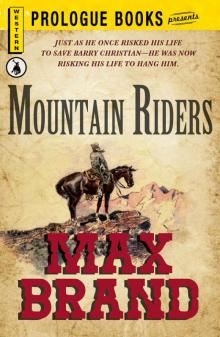 Mountain Riders
Mountain Riders Silvertip (1942)
Silvertip (1942)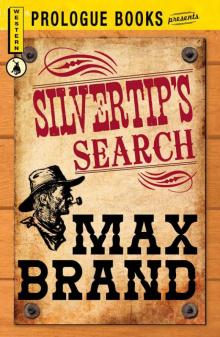 Silvertip's Search
Silvertip's Search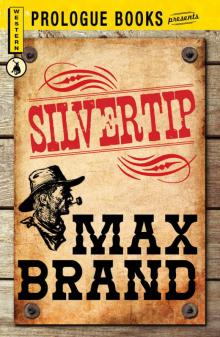 Silvertip
Silvertip Bull Hunter
Bull Hunter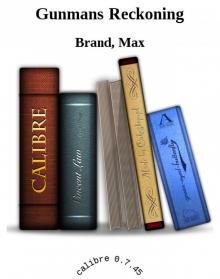 Gunmans Reckoning
Gunmans Reckoning The Seventh Man
The Seventh Man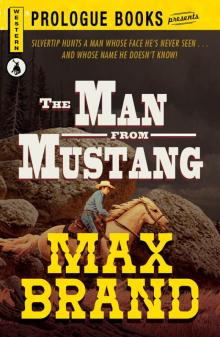 Man From Mustang
Man From Mustang Riders of the Silences
Riders of the Silences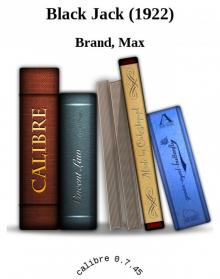 Black Jack (1922)
Black Jack (1922) Way of the Lawless
Way of the Lawless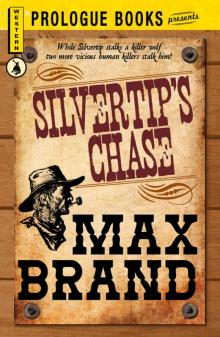 Silvertip's Chase
Silvertip's Chase Trailin
Trailin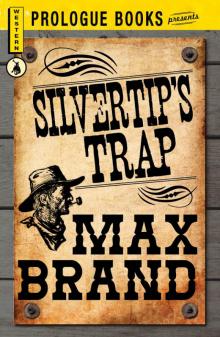 Silvertip's Trap
Silvertip's Trap Ronicky Doone (1921)
Ronicky Doone (1921) The Night Horseman
The Night Horseman the Garden Of Eden (1963)
the Garden Of Eden (1963)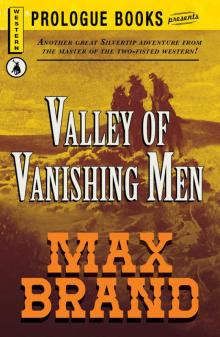 Valley of the Vanishing Men
Valley of the Vanishing Men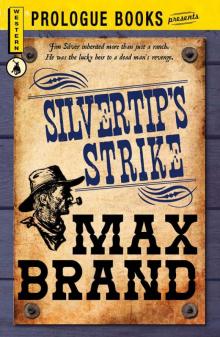 Silvertip's Strike
Silvertip's Strike Black Jack
Black Jack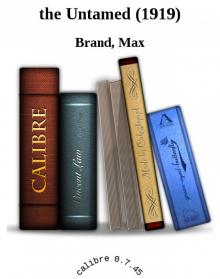 the Untamed (1919)
the Untamed (1919) Way Of the Lawless (1921)
Way Of the Lawless (1921) The Untamed
The Untamed